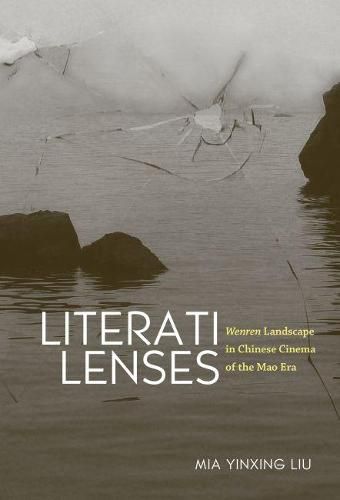Readings Newsletter
Become a Readings Member to make your shopping experience even easier.
Sign in or sign up for free!
You’re not far away from qualifying for FREE standard shipping within Australia
You’ve qualified for FREE standard shipping within Australia
The cart is loading…






Chinese cinema has a long history of engagement with China’s art traditions, and literati (wenren) landscape painting has been an enduring source of inspiration. Literati Lenses explores this interplay during the Mao era, a time when cinema, at the forefront of ideological campaigns and purges, was held to strict political guidelines. This is a particularly intriguing period for the study of landscape in film, for while a film’s script was under constant and multifaceted scrutiny, its landscape, a silent backdrop in the final production, tended to slip past censorial eyes.
Author Mia Yinxing Liu examines literati landscape through four films: Li Shizhen (1956), Stage Sisters (1965), Early Spring in February (1963), and Legend of Tianyun Mountain (1979). By close readings of these problematic, even poisonous films (official criticisms from Party media), she sheds light on how landscape offered an alternative text that could operate beyond ideological constraints and provide a portal for smuggling interesting discourses into the film. On the one hand, allusions to pictorial traditions associated with a bygone era inevitably took on different significances and even transformative meanings in the context of Mao-era cinema. On the other, unlike derivative citations or reverent homages, cinematic engagement with literati landscape endowed films with creative and critical space, as well as political poignancy. Liu not only identifies and investigates how the conventions, motifs, topoi, and aesthetics of traditional literati landscape art are reinvented and mediated on multiple levels in cinema, but also explores how post-1949 Chinese filmmakers configure themselves as modern intellectuals in the spaces forged among the vestiges of the old. In the process, she deepens her analysis, illuminating notions of utopia, monumentality, history, memory, representation, and re-appropriation. Landscape, she suggests, can be seen as an allegory of human life, a mirror of the age, and a commentary on national affairs.
$9.00 standard shipping within Australia
FREE standard shipping within Australia for orders over $100.00
Express & International shipping calculated at checkout
Chinese cinema has a long history of engagement with China’s art traditions, and literati (wenren) landscape painting has been an enduring source of inspiration. Literati Lenses explores this interplay during the Mao era, a time when cinema, at the forefront of ideological campaigns and purges, was held to strict political guidelines. This is a particularly intriguing period for the study of landscape in film, for while a film’s script was under constant and multifaceted scrutiny, its landscape, a silent backdrop in the final production, tended to slip past censorial eyes.
Author Mia Yinxing Liu examines literati landscape through four films: Li Shizhen (1956), Stage Sisters (1965), Early Spring in February (1963), and Legend of Tianyun Mountain (1979). By close readings of these problematic, even poisonous films (official criticisms from Party media), she sheds light on how landscape offered an alternative text that could operate beyond ideological constraints and provide a portal for smuggling interesting discourses into the film. On the one hand, allusions to pictorial traditions associated with a bygone era inevitably took on different significances and even transformative meanings in the context of Mao-era cinema. On the other, unlike derivative citations or reverent homages, cinematic engagement with literati landscape endowed films with creative and critical space, as well as political poignancy. Liu not only identifies and investigates how the conventions, motifs, topoi, and aesthetics of traditional literati landscape art are reinvented and mediated on multiple levels in cinema, but also explores how post-1949 Chinese filmmakers configure themselves as modern intellectuals in the spaces forged among the vestiges of the old. In the process, she deepens her analysis, illuminating notions of utopia, monumentality, history, memory, representation, and re-appropriation. Landscape, she suggests, can be seen as an allegory of human life, a mirror of the age, and a commentary on national affairs.